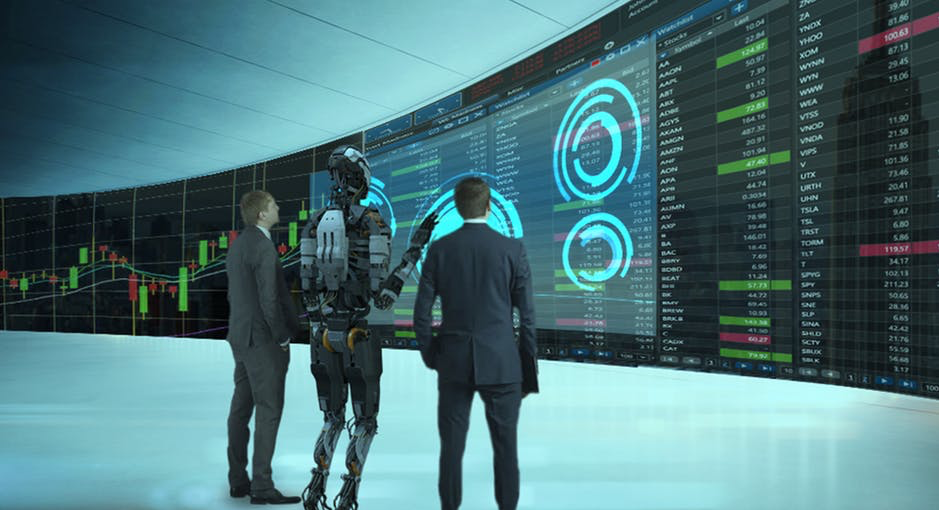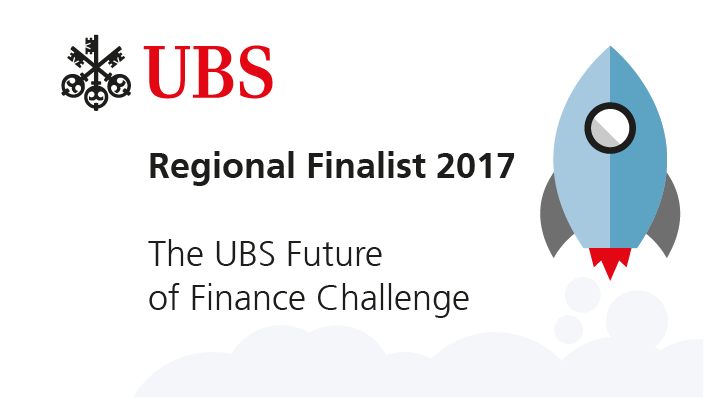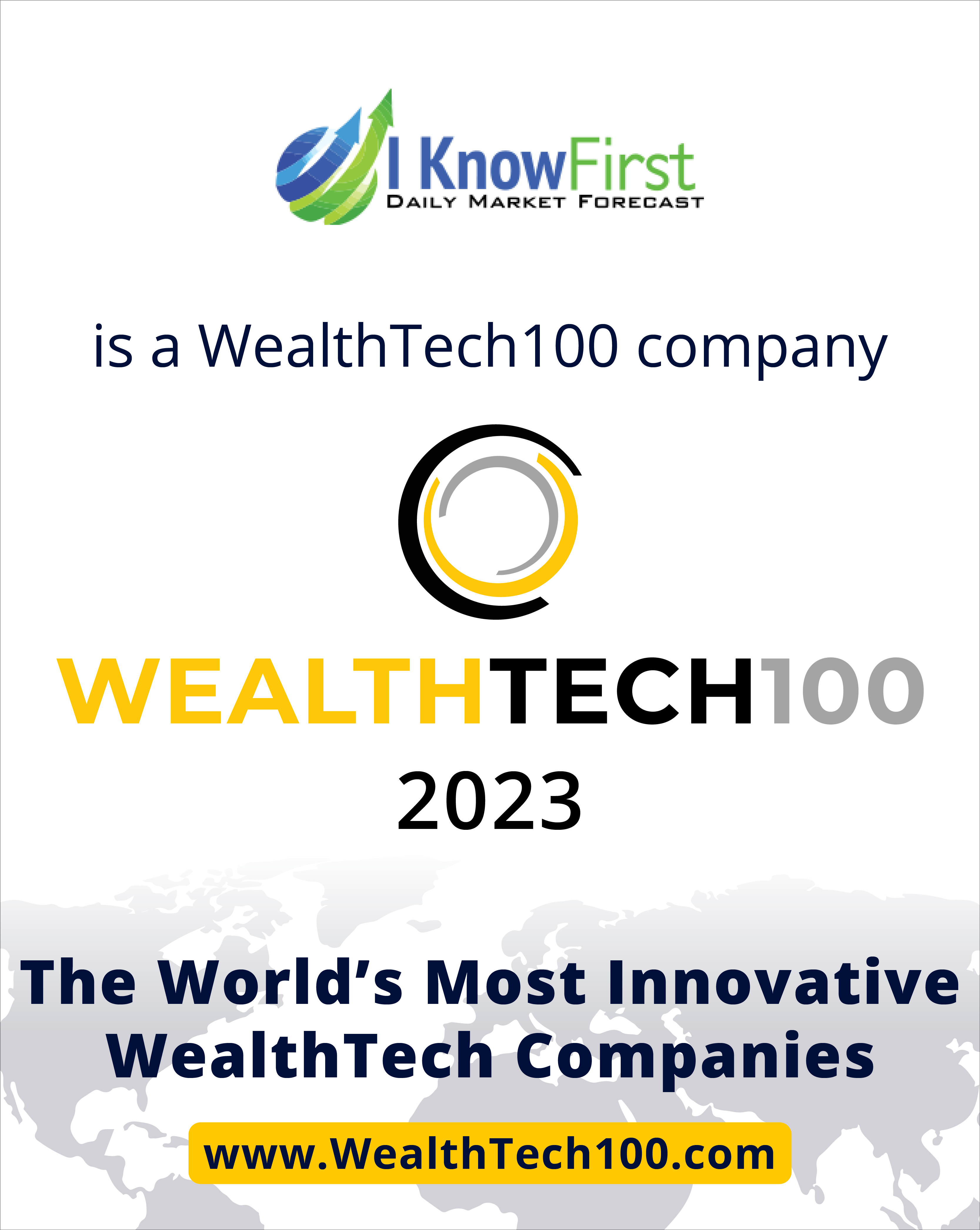Artificial Intelligence: How Modern Financial institutions Use AI?
 This article was written by Graham Ellinson, a Financial Analyst at I Know First.
This article was written by Graham Ellinson, a Financial Analyst at I Know First.
Artificial Intelligence: How Modern Financial institutions Use AI?
“Some people call this artificial intelligence, but the reality is this technology will enhance us. So instead of artificial intelligence, I think we’ll augment our intelligence.” — Ginni Rometty
Summary
- The original use of AI by Banks was for fraud detection.
- Aside from fraud detection many financial institutions have been slow to implement AI.
- The UK bank Barclays have started experimenting with AI after becoming the flagship customer of AI simulation firm Simudyne Technology.
- I Know First are unique: providing an AI product that boasts successful performance in daily market forecasting and wealth management solutions.
Artificial Intelligence is a word that gets thrown around a lot these days. Especially with the entrance of AI into the home with the likes of Amazons Alexa and Apples Siri it is now something that regular consumers interact with on a day-to-day basis. What this means is that it can lead to common misconceptions about AI and its uses. To some it is a smart assistant to others it is that annoying machine who answers the phone when you call customer services. However, AI has a wide range of uses and surprisingly in some cases still limited.
The original use of AI by Banks was for fraud detection. Today almost every bank heavily relies on AI to sift through multiple transactions and learn consumer activity both subjectively and objectively and recognise atypical transaction. The AI can learn an individual’s spending habits and then identify potential fraud. A simple machine would have to be pre-programmed and would not provide a customised fraud detection service.
The slow uptake on AI in the Financial Sector
Aside from fraud detection many financial institutions have been slow to implement AI. This is largely due to the strict regulatory requirements and security concerns relating to such technology. Ironically this is something that AI itself is seeking to address. For example, IBM RegTech is a comprehensive solution portfolio that leverages deep expertise in risk and compliance with advanced AI and analytics technology. Much like how AI systems help oncologists determine the best cancer treatments, financial institutions can now be armed to make more informed decisions to manage risk and compliance processes and obligations. With one of the key concerns surrounding AI being a compliance issue IBM have implemented AI that directly assists in financial compliance.
To date most financial institutions use some form of AI, Morgan Stanley Wealth Management have recently announced its ‘Next Best Action’ initiative which can help evaluate ideas that can be suggested to a client. The tool could prompt your advisor to send a message when a stock you have a significant position in has been downgraded by the firm. However, if a financial advisor at Morgan Stanley should be worried that their job will be replaced by AI in the bear future most will not be worried. The braver banks such as Barclays have started experimenting with AI after the UK bank became the flagship customer of AI simulation firm Simudyne Technology. They are now attempting to use it for market modelling and other tail events such as trade wars etc and simulate the outcomes such event can have on the market.
Will AI Have a Future in the Financial Sector?
To directly utilise AI and provide market forecasting and wealth management advice is something that many large firms are still yet to implement. I Know First are unique in this sense to have researched and refined an AI product that boasts successful performance in daily market forecasting and wealth management solutions. In an upcoming conference in Hong Kong the potential for AI to power a new way for financial institutions to make decisions will be discussed. In ten years or so AI will undoubtedly be a staple piece of every wealth management firm’s arsenal. Already the braver financial institutions such as I Know First will present to financial institutions in Hong Kong Fintech week. Investors in Asia are showing a keen interest to utilise AI for market forecasting, it is only a matter of time until the less- confident follow suit.
How I Know First Is Revolutionising the Use of AI In Finance
One of the most most sought after applications of artificial intelligence in banking is its use for active wealth management. I Know First is pushing this frontier and making bold moves towards the future of financial investment. I Know First is a Fintech company that provides state of the art AI-based self-learning algorithmic forecasting solutions for the capital markets to uncover the best investment opportunities. There are two tiers to I Know First’s service. Tier I is a client-based daily forecast as a DSS (Desicion Support System) for retal customers. It provides clients with a heatmap of the top picks for bullish and bearish stocks over various time horizons. Tier II is institution-based. For Tier II, I Know First uses its AI algorithm to structure an investment portfolio.
I Know First was selected as a Top 3 Fintech company in Europe in the European Fintech Awards 2017. I Know First has clients in over 50 countries and makes predictions over 40 markets across the world and considered one of the Top fintech companies in Israel.
In addition, I Know First is currently integrating the company’s artificial technology with the Bank’s Research and Advisory division. This will utilize the algorithm to identify investment opportunities and offer clients ETF and sector stock predictions. This is made possible by a bottom-up approach based on I Know First’s AI algorithm, which, for example, will build the collection of ETF stock options from the individual stocks.
I Know First is also looking at other opportunities in Israel, specifically at actively managing mutual funds and hedge funds with an Israeli Investment House. The company is also developing AI-powered wealth management products and investment vehicles. These include approaches such as smart-beta and actively managed ETFs.
I Know First is transforming financial services with artificial intelligence. Recently, BBVA selected the company as one of the few Israeli fintech startups invited to present at “Pitch Day” at the BBVA Innovation Center in Madrid. This accomplishment is another marker along the road for I Know First’s expansion and for the company to tackle the issues of the financial industry with the artificial intelligence.
The I Know First Market Prediction System models and predicts the flow of money between the markets. It separates the predictable information from any “random noise”. It then creates a model that projects the future trajectory of the given market in the multidimensional space of other markets. The system outputs the predicted trend as a number, positive or negative, along with the wave chart that predicts how the waves will overlap the trend. This helps the trader decide which direction to trade, at what point to enter the trade, and when to exit. It is also a tool that is utilised to assist large high-risk trading such as hedge fund managers.
There are several extremely interesting recent developments in I Know First’s involvement with banking in particular. For example, the company is working with several large European banks to apply the algorithmic predictions for the US stock exchange to Euronext. Furthermore, the company is also developing an advanced trading ideas generation tools. This is aimed at the private banking division, providing strategic approaches to using the generated daily market opportunities forecast. I Know First is also looking at similar opportunities in Brazil, with BM&F BOVESPA.
I Know First has recently come to an agreement with a local Hong Kong partner. I Know First will be the first company provide AI forecasting services for the Hong Kong Stock Market to the retail clients from Mainland China and Hong Kong. This reinforces the notion that AI does indeed have a significant role to play in the financial market. With each region gradually opening its doors to this revolutionary technology.















